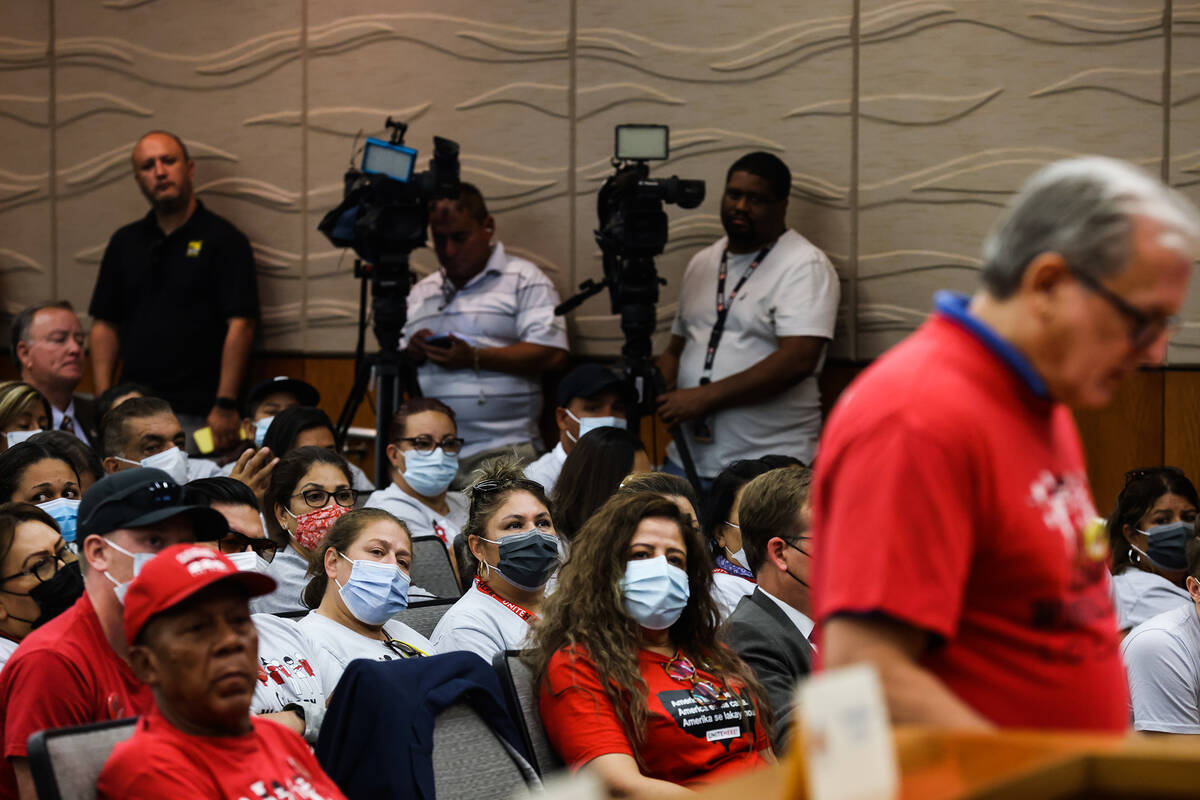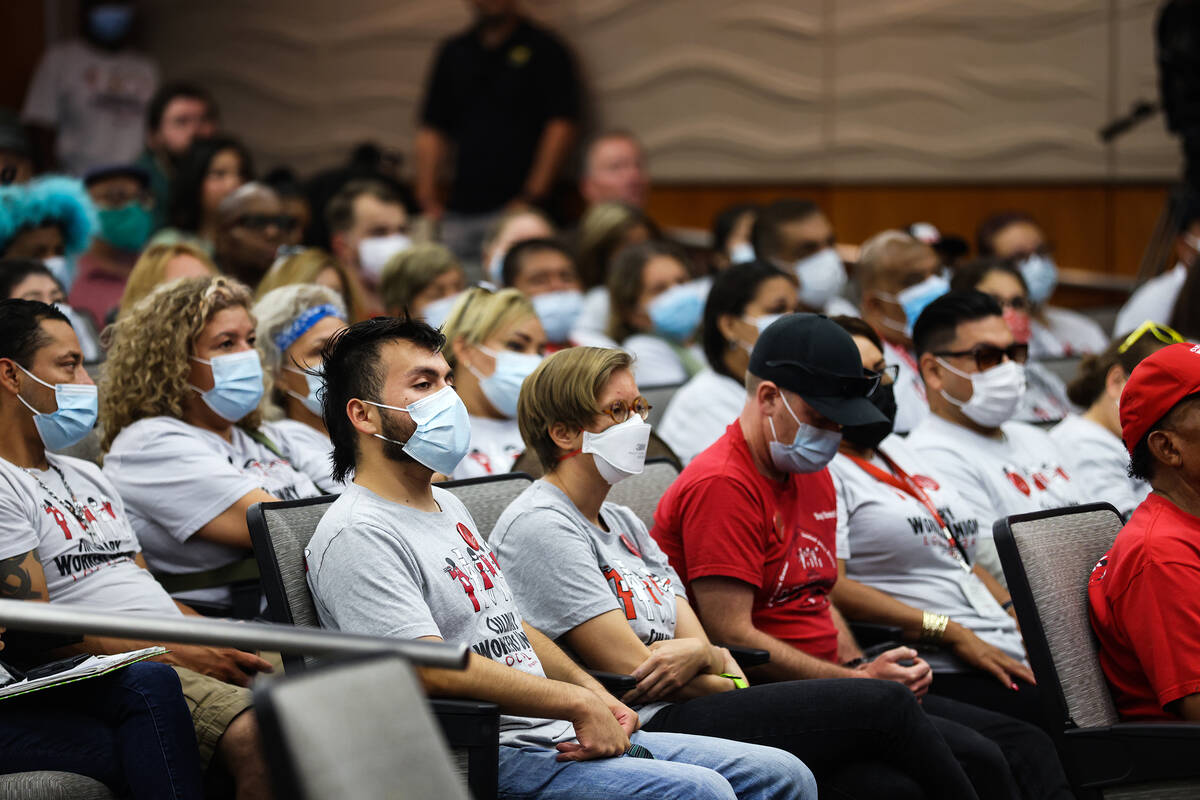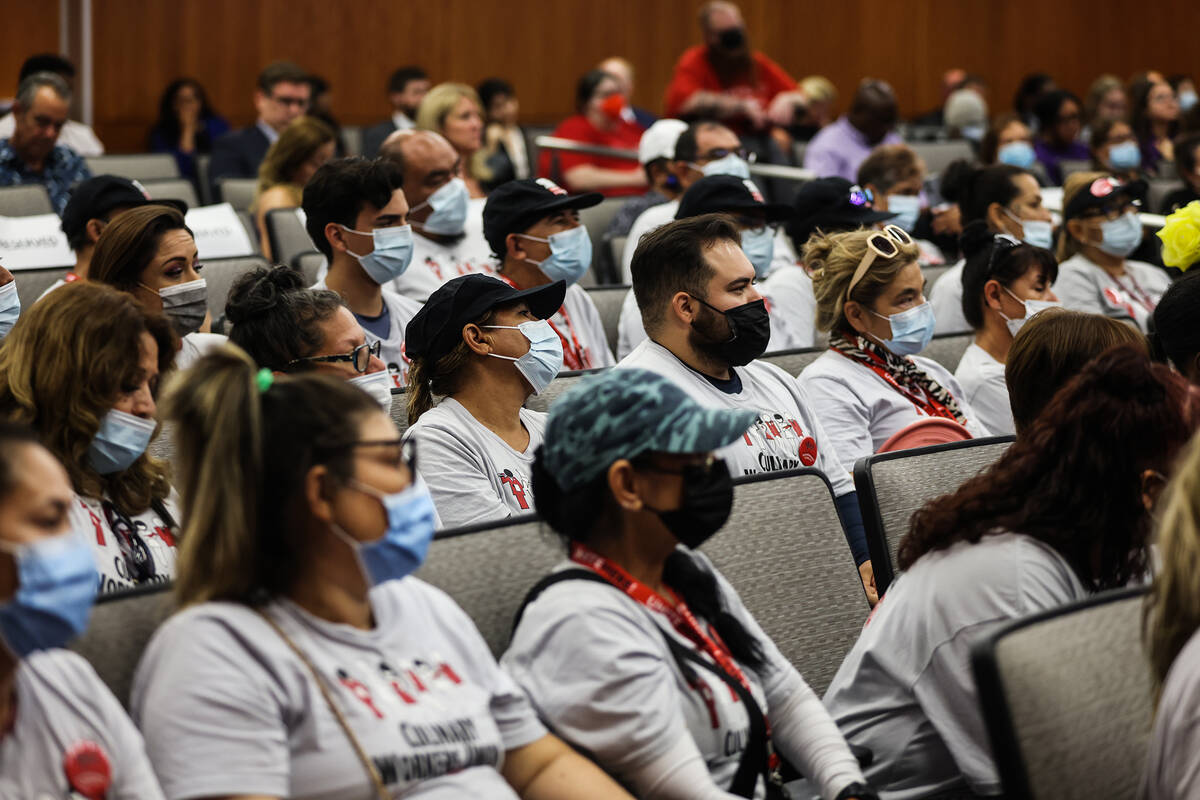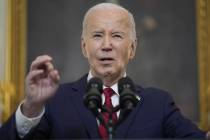North Las Vegas rejects Culinary rent-control petition
The North Las Vegas City Council on Wednesday sided with the city clerk’s rejection of a petition to put rent control on the November ballot.
The council voted 4-1, with Councilman Richard Cherchio voting no, to accept City Clerk Jackie Rodgers’ ruling that the petition didn’t gather enough signatures to go on the November ballot.
But Culinary Local 226 — which launched the ballot initiative in May to tie year-over-year rent increases to the city’s consumer price index and cap them at 5 percent — contested Rodgers’ decision, arguing that the 3,396 signatures it submitted were more than enough.
We’re right in this fight, and we’re going to win, but we’re going to win by sticking together,” Ted Pappageorge, the union’s secretary-treasurer, told a couple dozen cheering supporters outside City Hall after the vote.
“They’ve drawn a line in the sand,” he said about the council. “We’ll be in court, we’ll get this all on the ballot, don’t worry about what these high-priced lawyers are saying in there.”
“The actions of the North Las Vegas City Council today is a clear example of how the current leadership has failed to respond to the urgent crisis North Las Vegas residents are facing everyday as they are being evicted and priced out of their homes and neighborhoods,” the union leader later said in a statement, describing the vote as “shameful” and adding that the labor union would be filing a lawsuit “shortly.”
Fighting over state law
The disagreement stems from the interpretation of the number of petition signatures needed to advance a ballot measure, a point argued extensively by attorneys representing the city and the union.
Nevada law puts that number at 15 percent or more of the voters who participated in the previous “city election.” When the petition was filed, that election was the June 2019 municipal general election. But by the time organizers submitted the signed petitions in June, the primary election had taken place, increasing the number of signatures required, according to the city.
Rodgers said that organizers needed 3,968 signatures and that only 2,678 were deemed valid.
The union contested that only 475 valid signatures were needed to move the initiative ahead, based on the low-turnout 2019 election, and that it had consulted Rodgers before submitting the proposed ordinance.
The city said that Rodgers was contacted in March by petition organizers, who had not identified themselves nor stated the intention of the proposed ballot measure. At the time, the information she provided was accurate, the city argued.
Lengthy discussions at Wednesday’s meeting pitted attorneys Steven Silva, representing the city, and Paul More, representing the union.
Both argued extensively about how state law should be interpreted and what constitutes the previous city election.
Burden of proof
“Who does that burden fall on; who has to prove their case affirmatively?” More asked the council. “That burden should weigh heavily, and if you have a differing interpretation, even if you don’t feel that you’re in a position to sort out who’s correct, the weight of that burden should be on those who would deny the committee the right to have this initiative, this popular initiative.”
The city maintained that had the petition been submitted before June’s primary election, the argument about the documents’ validity would have been moot, and the measure would have advanced.
“I do support rent control, and I do agree that something needs to be done to help the folks that are struggling in our state” Councilwoman Pamela Goynes-Brown said. But she added that the debate Wednesday was over the petition certification, not the merits of the proposal.
Contact Ricardo Torres-Cortez at rtorres@reviewjournal.com. Follow him on Twitter @rickytwrites.


























